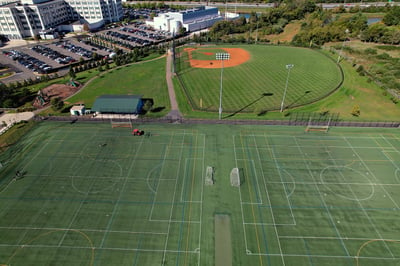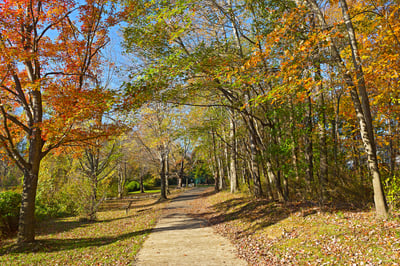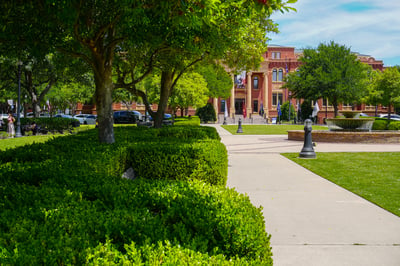We all know that water is a precious resource. Given its scarcity and finite availability, the cost of water is rising—and that can hit hard when it comes to your property’s budget. If you’ve struggled with high water bills in the past, then you know it can be an expensive line item.
Of course, it’s also true that a beautiful landscape is important to your property’s value. It adds aesthetic appeal, allows for outdoor gathering spaces, enhances both the use and the enjoyment of your property, and so much more. Although you’re interested in saving water, you probably aren’t ready to forgo a healthy and inviting landscape.
That’s why you might be wondering how to make your landscape more water-efficient.
You’re likely interested in ways that you can have the “best of both worlds.” You want a beautiful and thriving landscape—but you want it to use water wisely. After all, any runoff or excess use is literally money going down the drain!
To help you achieve your goals, we’ve rounded up our best water-efficient ideas. We want you to help you reduce your watering costs while still having an attractive commercial landscape that you’re proud of.
1. Upgrade to Smart Irrigation for Water-Efficient Landscaping
Far and away, upgrading to a smart irrigation system is one of the most effective water-efficient ideas out there. Irrigation systems are essential to keep a landscape thriving. But irrigation can also become costly if you’re running an outdated system that’s wasting water.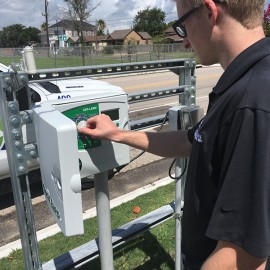 Smart irrigation systems tailor their watering schedules and run times to the actual weather conditions as opposed to just following a predetermined watering schedule. These real-time adjustments help conserve water by supplying the landscape with what it actually needs and avoiding overwatering in your landscape.
Smart irrigation systems tailor their watering schedules and run times to the actual weather conditions as opposed to just following a predetermined watering schedule. These real-time adjustments help conserve water by supplying the landscape with what it actually needs and avoiding overwatering in your landscape.
Depending upon the specific features of the smart irrigation system that you have installed, watering can be adjusted for not just daily weather but also the plant type, soil type, and slope. Smart irrigation systems help ensure that your plants and turf get exactly what they need but no more. Excess watering can ultimately turn into runoff which is a problem in itself.
By eliminating that excess water waste, you can significantly save on your commercial property’s watering bill.
2. Choosing Water-Efficient Plants to Reduce Watering Costs
Plant selection also plays an incredibly important role in how much water your landscape will require to thrive. The fact is that not all plant material is the same. Certain plants have more intense watering requirements than others. Therefore, selecting plants while keeping watering needs in mind can make a big difference in how much water your commercial landscape needs.
Choosing native plants that are adapted to the local conditions is a great way to conserve water because they’re already naturally adapted to the local growing conditions. This means they’ll require less water to survive in the landscape.
While the right plant selection is vital, it can’t be overlooked that the right plants also need to be planted in the right place. Your landscape professional should be well-aware of what plants will perform optimally on what areas of your property. The truth is, even if you choose a drought-tolerant plant but you plant it in an area where the conditions are not optimal for its growth, those benefits could easily be lost.
For this reason, it’s essential that the sun, shade, and water conditions of all areas of the landscape are assessed and then matched with the appropriate plant material. It’s not as simple as just sticking plants in the ground where they look good. There should be a strategic plan to any planting in order to reduce water use and encourage optimal performance.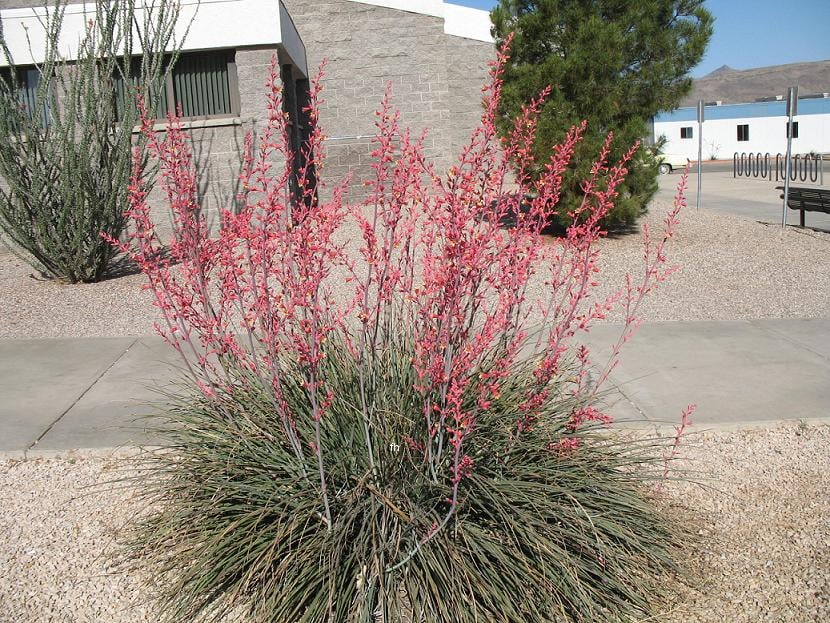
3. Improving Soil for Optimal Plant and Turf Performance
Of course, the soil also plays a valuable role in how well your plants and turfgrass perform. Improving the soil can mean enhanced water drainage and ultimately improved drought resiliency. The fact is, healthy soil can hold more water when it does rain. Think of healthy soil like a sponge that absorbs and retains water.
On the flip side, unhealthy soil (particularly, compacted soil) may take in a little bit of water but the rest of it may turn into runoff.
Soil structure can be improved with lawn and plant health care programs as well as a valuable service called aeration.
Aeration helps your commercial turf to “breathe” through the process of making small holes that allow air, water, and nutrients to penetrate down to the roots where they’re needed most. This process helps to alleviate soil compaction.
4. Mulch for Water-Efficient Landscaping
Mulch is one of those services that you may consider something that just helps your property to look great. While there’s no question that mulch has a valuable aesthetic appeal, it also plays an important role in water conservation. In this way, it also serves a tool to help control watering costs for your commercial landscape.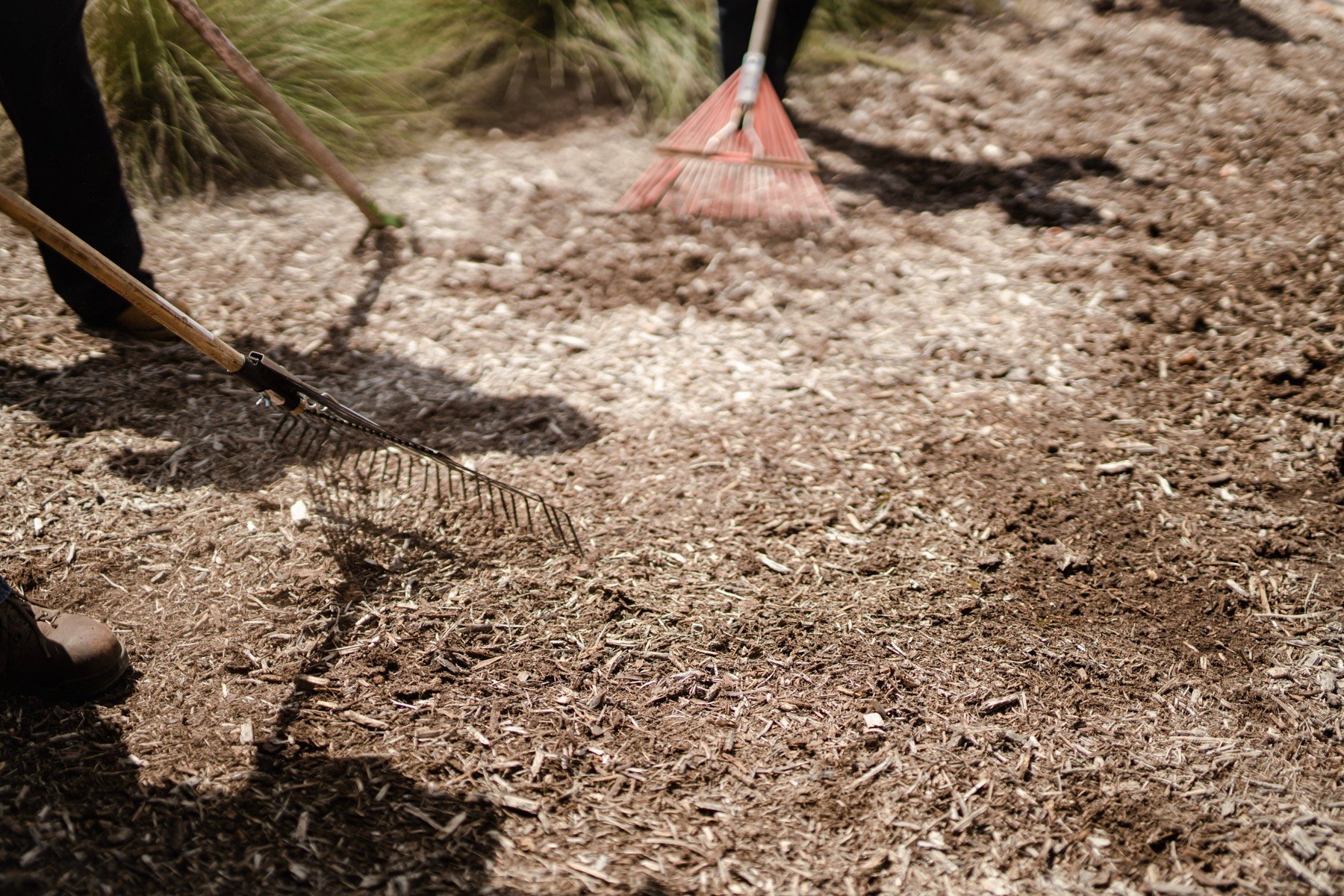
One of the key functional benefits of mulch is that it minimizes evaporation and allows your planting beds to retain more moisture. Mulch also plays a role in suppressing weed growth which is also important because weeds will compete with your healthy plants for water usage.
Mulch also helps to slow erosion and prevent soil and temperature fluctuations.
5. Give Attention to Slopes for Water-Efficient Landscaping
Even gradual slopes on your commercial property can cause erosion and runoff. When we talk about “runoff,” you might get a mental image of water gushing across your property—and that can certainly happen, particularly in hardscape areas.
However, erosion and runoff can often be a lot more subtle. With gradual slopes, water can slowly erode your topsoil and not be utilized in the landscape the way it was meant to be used.
Of course, sometimes a property has steep slopes and the problem is more overt. Whatever the case may be, if you’ve got a commercial property with slopes, then you’ll want to consider stabilization efforts to prevent erosion.
The solution that is best for your property is going to depend upon the specifics of your site. It could involve grading or maybe even the installation of some native plants that will help to slow down water movement and allow it to naturally drain into the soil as it ought to. Sometimes landscaping stone can be used to slow water on a property and allow it to be absorbed.
Having any erosion control concerns addressed can definitely help reduce water waste and save money.
6. It Comes Together with “Xeriscaping”
Many of these efforts we’ve talked about come together as part of an effort called “xeriscaping.”
Xeriscaping is a form of landscaping that focuses on reducing or eliminating the need for supplemental water from irrigation. It combines the use of native, drought-resistant plants with other smart practices like proper planning (“right plant, right place”), improved soil, and mulching. .jpg?width=1800&name=Mirehaven%20(3).jpg)
We often find that people have heard the term xeriscaping in the past but picture it as a landscape with lots of cacti and other succulents. In reality, there are many different native plants that can perform well while also looking great. And when you combine these drought-tolerant plant choices with other water-efficient landscaping practices, it can really come together in an effective and attractive way.
Choosing a Commercial Landscape Contractor to Help Reduce Watering Costs
When it comes to successfully reducing your watering costs on your commercial property without impacting the beauty and appeal of your landscape, your choice in commercial landscape contractors will make all of the difference. Your success requires finding a company that has the horticultural knowledge and experience to make smart plant choices while also implementing some of these water saving practices and services. That same landscape contractor should also be able to upgrade an outdated irrigation system to new smart irrigation technology. Over time, you also want them to have the capabilities to handle repairs and maintenance in-house, so that your system continues to function optimally.
At Yellowstone Landscape, we understand how costly inefficient water usage can be on a commercial property and how important it is that all of the right steps are taken. Water-efficient landscaping is more than just one magic formula; rather it requires the knowledge and expert implementation of multiple steps to create a more water efficient landscape.
When we work with commercial property managers, we believe in forming a partnership. It’s important that we’re meeting your property’s specific needs while keeping your expectations at the forefront of each step that we take. It is our goal to make you look your best. We understand that it’s your job on the line.
And we believe that you deserve to have the confidence that you’ve chosen the best partner for your commercial landscaping needs. Reducing watering costs may be a large undertaking but with the right partner on your side, it can be achieved.
Are you ready to feel confident in making a wise choice among commercial landscape providers? Request a consultation today. We’ll meet to learn more about your property and its challenges, then create a comprehensive plan to take care of all of the details for you.



